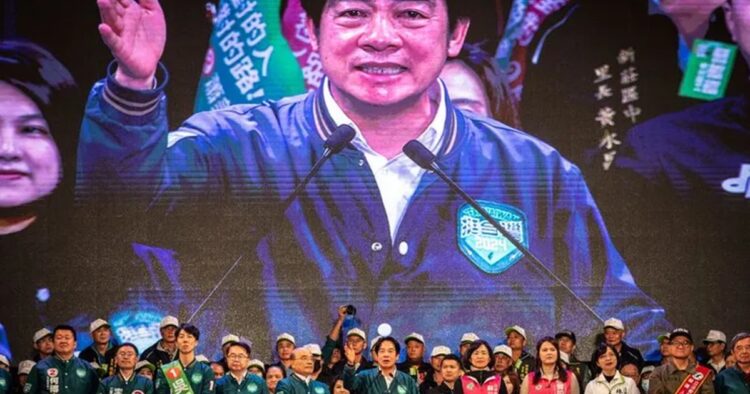Taipei, Taiwan – January 15, 2024: Taiwan’s ruling Democratic Progressive Party (DPP) achieved a historic third consecutive presidential victory as Vice President Lai Ching-te declared triumph on Saturday. Despite warnings from China about potential conflict risks, Lai emphasized the commitment of the Taiwanese people to democracy and global recognition. The election saw a voter turnout of over 71%, with Lai securing just over 40% of the total votes, according to Taiwan’s Central Election Commission.
China’s Response and International Reactions: In response to the election outcome, China reiterated its claim over Taiwan, stating that “Taiwan is part of China.” Meanwhile, other world powers, including the United States, congratulated Lai, with Secretary of State Antony Blinken acknowledging the strength of Taiwan’s democratic system. Lai’s victory is unlikely to improve strained ties between Beijing and Taipei, as China has increased pressure on Taiwan in various aspects over the past eight years.
Taiwan’s Stance and DPP’s View: The election result reflects voters’ support for the DPP’s perspective that Taiwan is a de facto sovereign nation, emphasizing the need to strengthen defenses against China’s threats and deepen relations with democratic countries. The DPP rejects the idea of Taiwan being subordinate to the Chinese Communist Party and asserts that its future should be decided by its 23.5 million people.
Challenges and International Relations: China’s disapproval of Lai’s victory indicates potential challenges ahead, with analysts suggesting China may escalate economic and military pressure on Taiwan. The United States, Taiwan’s major supporter, is expected to maintain its policy towards Taiwan, and an unofficial delegation is set to visit Taipei following the election.
Future Prospects and Lai’s Approach: Lai’s victory is seen as a continuation of the policies pursued by outgoing President Tsai Ing-wen, with a focus on maintaining the cross-strait status quo while safeguarding Taiwan from threats and intimidation by China. However, Beijing perceives Lai’s approach as provocative, increasing the likelihood of economic and military pressure on Taiwan in the coming days or weeks.
Hopes for Stability Amidst Tensions: While concerns about potential escalation exist, Taiwan’s security officials do not anticipate large-scale military actions from China immediately after the election. Analysts emphasize the importance of maintaining an uneasy yet stable relationship between Taiwan and China, highlighting that the DPP’s previous tenure did not lead to war, despite discomfort.
In conclusion, Lai Ching-te’s victory in Taiwan’s presidential election sets the stage for continued tensions with China, with potential economic and military pressures looming on the horizon. The international community watches closely as Taiwan navigates its delicate relationship with its powerful neighbor.

















Comments